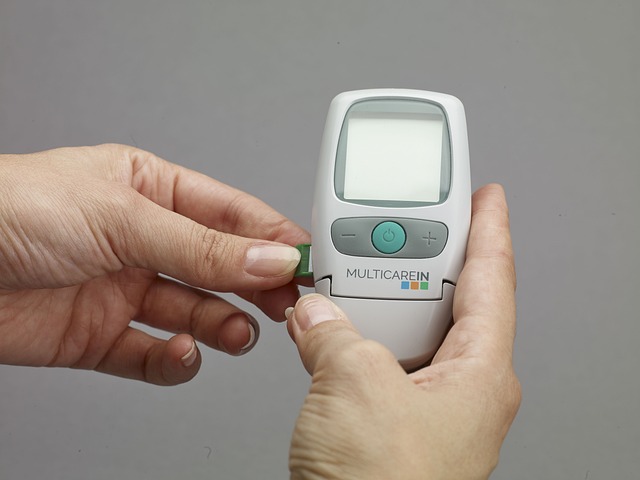Home blood test kits are gaining popularity as people seek greater control over their health, offering convenient, private, and timely access to accurate health insights without frequent clinic visits. These kits empower individuals to manage conditions like diabetes, cholesterol, vitamin deficiencies, and sexually transmitted infections. Selecting a kit requires understanding specific health needs, considering ease of use, accuracy, and cost. Interpreting results requires reading instructions carefully and consulting healthcare professionals for tailored reference ranges. While at-home testing offers immense convenience, it also raises significant privacy and security concerns, necessitating robust data protection measures to safeguard sensitive medical information.
Unleash the power of at-home health monitoring with innovative home blood test kits. These portable, user-friendly devices offer a convenient way to gain accurate insights into your well-being. Our guide explores the fundamentals and advantages of these tests, helping you choose the ideal kit for your needs. From understanding basic principles to interpreting results accurately, we demystify the process. Additionally, we delve into privacy and security concerns, ensuring peace of mind as you take control of your health.
- Understanding Home Blood Test Kits: The Basics and Benefits
- Choosing the Right Home Blood Test Kit for Your Needs
- Interpreting Results: Ensuring Accurate Health Insights
- Privacy and Security Considerations in At-Home Blood Testing
Understanding Home Blood Test Kits: The Basics and Benefits
Home blood test kits are becoming increasingly popular as people seek more control over their health and well-being. These innovative tools allow individuals to collect and analyze a small sample of their blood in the comfort of their own homes, providing accurate health insights without the need for frequent clinic visits. By offering a range of tests for various conditions, from diabetes and cholesterol levels to vitamin deficiencies and sexually transmitted infections, home blood test kits empower folks to take an active role in managing their health.
The benefits are clear: convenience, privacy, and timeliness. Users can avoid the hassle of scheduling appointments, dealing with busy clinics, or facing long wait times for lab results. With immediate access to their health data, individuals can make informed decisions about their lifestyle choices, consult healthcare professionals promptly, and take appropriate actions based on the test outcomes. This direct-to-consumer approach is revolutionizing healthcare, making essential health monitoring more accessible and efficient.
Choosing the Right Home Blood Test Kit for Your Needs
Selecting the perfect home blood test kit is a personal journey, as each individual’s health needs and preferences differ. The key to choosing the right one lies in understanding your specific requirements. Start by identifying the aspects of your health you want to monitor—whether it’s tracking chronic conditions like diabetes or simply keeping an eye on basic vitals like cholesterol levels. This decision will narrow down your options, as some kits are designed for comprehensive health assessments, while others focus on specialized testing.
Consider factors such as ease of use, accuracy, and cost. User-friendly kits with clear instructions and reliable results are ideal for at-home testing. Additionally, comparing price points ensures you find a kit that aligns with your budget without compromising quality. With numerous options available, taking the time to research and select the right home blood test kit will empower you to take charge of your health and make informed decisions.
Interpreting Results: Ensuring Accurate Health Insights
Interpreting results from a home blood test kit is crucial for gaining accurate health insights. It’s essential to understand that these tests provide a snapshot of your current health status, and context is key. Read the instructions thoroughly before beginning, as different kits may have specific guidelines. Many kits offer an online portal or mobile app to help interpret results, providing reference ranges and explanations tailored to each marker measured.
Pay attention to the provided reference ranges, which are often based on a large-scale population study. While these can give you a general idea of what’s considered normal, remember that individual factors like age, gender, genetics, and lifestyle can influence these values. If your results fall outside the recommended range, it doesn’t necessarily mean there’s cause for alarm, but further investigation with a healthcare professional is advised to determine if any lifestyle changes or medical follow-up are necessary.
Privacy and Security Considerations in At-Home Blood Testing
At-home blood testing offers unprecedented convenience for individuals to monitor their health, but it also raises significant privacy and security concerns. As more people opt for home blood test kits, the protection of their sensitive medical data becomes paramount. Personal health information is incredibly valuable and vulnerable to cyberattacks or unauthorized access, which could lead to severe consequences and identity theft.
Privacy and security measures must be robust in the context of at-home blood testing. This includes ensuring that personal samples are handled securely during collection and storage and that digital platforms used for data transmission and storage adhere to strict encryption standards. Companies offering home blood test kits should implement secure data management practices, obtain user consent for data sharing, and comply with relevant data protection regulations to safeguard individuals’ health insights.
Home blood test kits offer a convenient and accessible way to gain valuable health insights. By understanding the basics, choosing the right kit, interpreting results accurately, and being mindful of privacy and security, individuals can leverage these tools to take control of their health. Incorporating at-home blood testing into one’s routine empowers folks to make informed decisions about their well-being with confidence.
